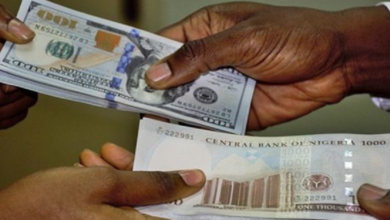Asian currencies tepid after soft US inflation – Business & Finance

BENGALURU: Asian currencies kept tight ranges while stocks were mixed on Friday, after data showed US inflation at a three-year low, keeping alive expectations of rate cut by Federal Reserve in June.
Regional currencies have remained muted this week. The Philippine peso gained 0.3% on Friday, but was on track for a 0.2% weekly fall, while the Thai baht was set to gain 0.5% for the week.
The Malaysian ringgit inched 0.1% higher and headed for a 0.8% increase for the week, its best weekly gain in two months.
The currency has edged away from the 26-year low it reached last week. The country’s finance ministry said it expects the ringgit to appreciate this year and dismissed suggestions monetary might be adjusted to prop up the currency, which has weakened 3.2% in 2024.
Malaysia’s Prime Minister Anwar Ibrahim and central bank Governor Abdul Rasheed Ghaffour have both said they see the ringgit as undervalued and not reflective of the country’s strong fundamentals.
Second Finance Minister Amir Hamzah Azizan has said the central bank has also stepped up efforts to curb excessive movement in the ringgit’s value and encouraged firms to use local currency for export settlements to reduce dependency on the dollar.
“We could see more relief for the ringgit by the middle of the this year, but for now, I think the interest rate differential or disadvantage, could still work against the ringgit,” said Moh Siong Sim, FX strategist at Bank of Singapore.
Meanwhile, US personal consumer expenditures (PCE) price index data picked up in January in line with expectations, while annual inflation slipped to the lowest in three years, keeping the chances of a Fed rate cut by mid-year on the table.
In Asia, shares in the Philippines rose as much as 0.9% to their highest in a year and were on track for their sixth straight weekly gain.
Malaysian stocks dropped as much as 0.5%, while Thailand stocks lost 0.5% on Friday. Stocks in Indonesia were down as much as 0.6% and the rupiah gained 0.2%.
Indonesia’s inflation rate was at 2.75% in February, above expectations, while core inflation was unchanged from the month before and below market’s prediction.
The country’s annual inflation rate has stayed within the central bank’s target range since mid-2023, following Bank Indonesia’s decision to hike interest rates a total of 250 basis points between August 2022 and October 2023. “While the inflation is still well behaved, the Bank Indonesia’s policy decision in terms of when to ease will still be dependent on the Fed itself,” Bank of Singapore’s Sim added.
Meanwhile, data from China showed manufacturing activity in February contracted for a fifth straight month, raising pressure on policymakers to consider further stimulus measures. China’s yuan slipped 0.1% and stocks were largely unchanged.





